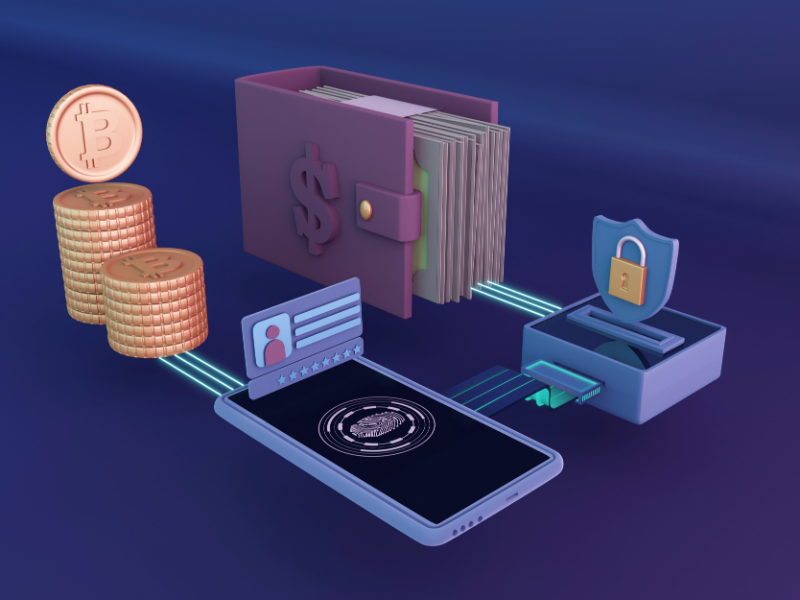- Hot wallets are connected to the Internet, making them less secure and more susceptible to risks, but they are user-friendly. Cold wallets, on the other hand, are stored offline and do not require internet connectivity, thus offering improved security with reduced risk.
- Hardware wallets are devices designed to manage public addresses and keys. They resemble a USB drive with an OLED screen and side buttons.
A cryptocurrency wallet is a digital wallet that allows users to manage their cryptocurrencies. It’s akin to a digital bank account where you can send, receive, and manage your digital currency. But unlike traditional bank accounts, these wallets can be as diverse as the cryptocurrencies they hold. A cryptocurrency wallet is a digital wallet that allows users to manage their cryptocurrencies. A wallet is a combination of a public address and a private key. The wallets can be categorised based on the method and location of storage in the following segments. Crypto wallets can broadly be categorised into cold wallets and hot wallets.
Hot and cold wallets
Internet connectivity defines a wallet in terms of hot or cold. Hot wallets are connected to the Internet and thus are less secure and pose more risks but are user-friendly. Cold wallets, on the other hand, are stored offline and don’t require internet connectivity. Thus, improving security and less risk. When compared to a safe or a vault, more substantial sums of money can be stored than that in a carry-around wallet. Hot wallets are more likely to be used for daily transactions, and cold wallets for more long-term holdings. Hot wallets are easy to set up, and the funds are quickly accessible. Traders conveniently use them. Cold wallets are hack resistant, and thus the cold storage is suitable for HODLers. As a protection method, only a small percent is stored in hot wallets while being able to trade directly from their cold storage devices.
Also read: Ways to make money with crypto
Also read: Shielding your coins: The rise of cryptocurrency insurance
Hardware wallets
Hardware wallets are devices designed to manage public addresses and keys. They resemble a USB drive with an OLED screen and side buttons. It is a battery-less device and can be connected to a PC and accessed by native desktop apps. It costs up to 70-150 dollars, but it is worth it. They have received a mixed response. They are more secure than hot wallets and user-friendlier than paper wallets but less than web and desktop wallets. They are available in different forms and offer reasonable amounts of control. They are difficult for beginners to use when the investment is significant. The Most popular hardware wallets are Ledger Nano S and Trezor.
Paper wallets
It is a physically printed QR coded form wallet. Some wallets allow downloading the code to generate new addresses offline. They are not prone to hacks, but the number of flaws has made them dangerous. A major flaw is not being able to send partial funds. Thus, it can’t be reused. They used to be very popular for cold storage, but not after hardware wallets came onto the scene. All in all, if stringent security precautions are taken, then paper wallets can be set up.

